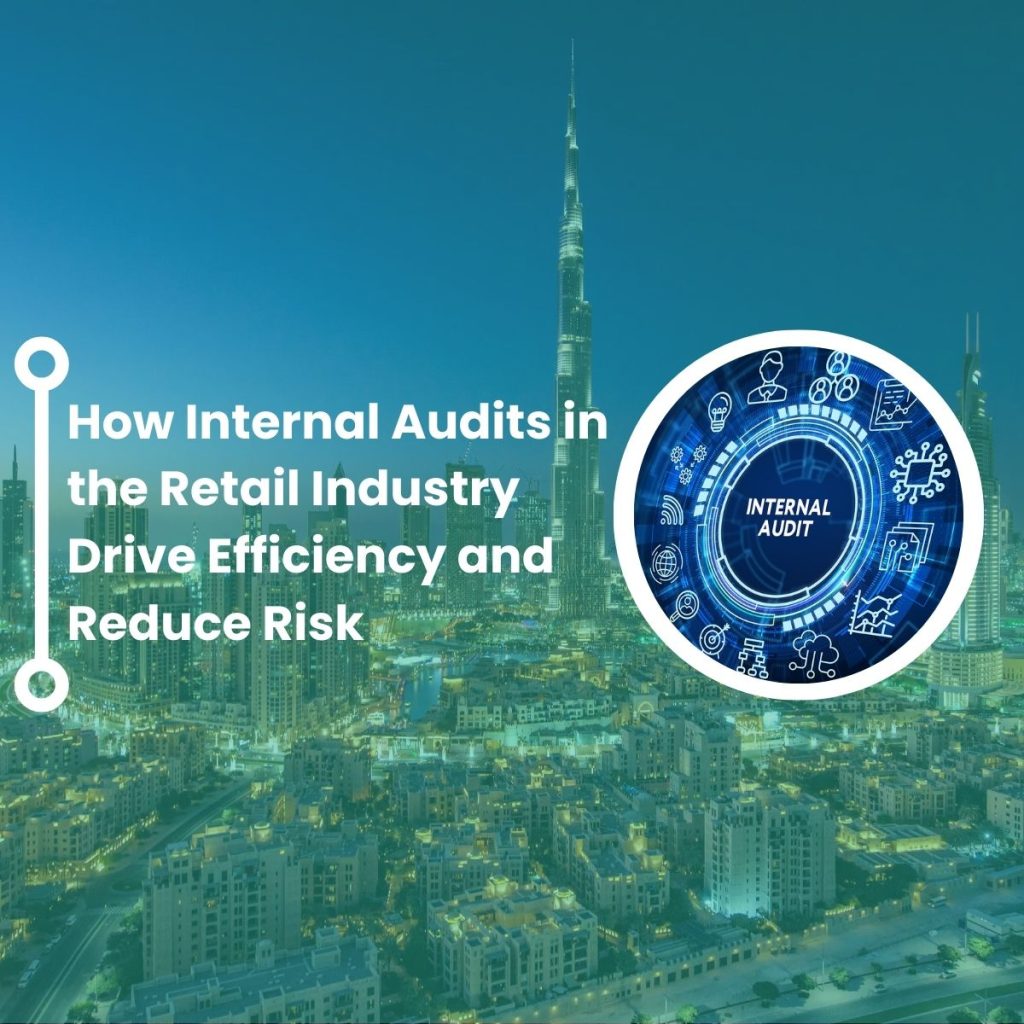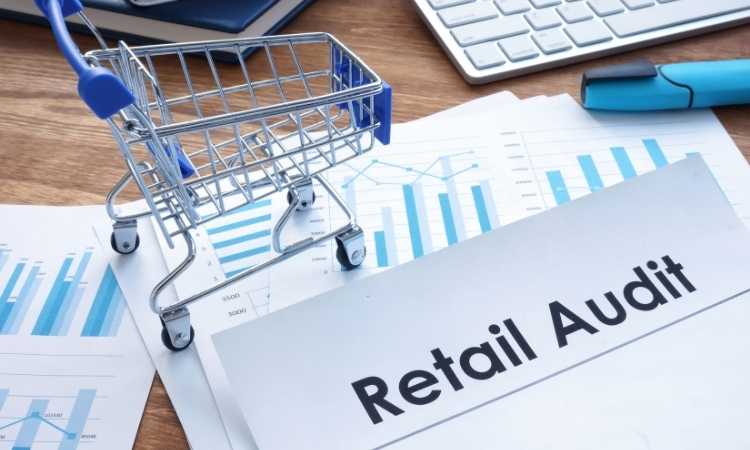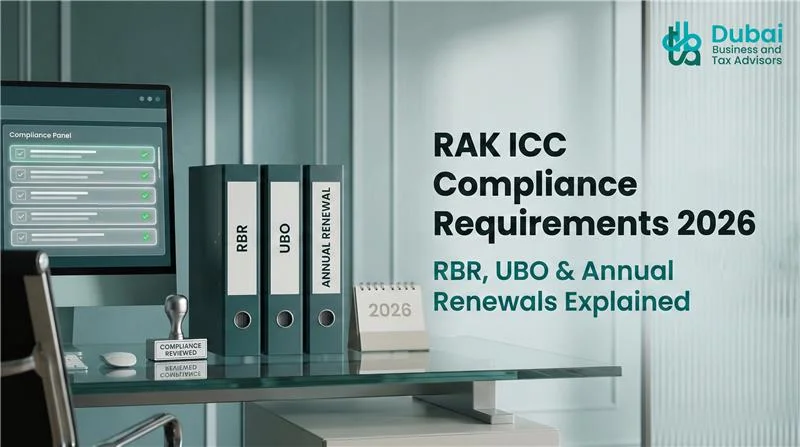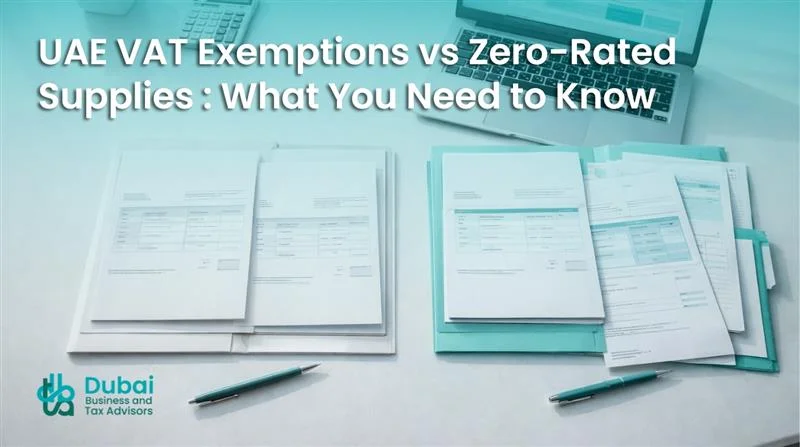Internal Audits in Retail: Drive Efficiency and Reduce Risk
Recent Insights

Table of Contents
Internal audit is one of the most important aspects of a business growth and operational efficiency. Internal audit proves to be a crucial tool that helps retail stores not only improve compliance but also maintain accuracy with its procedures and processes
In retail store internal audit helps in analyzing and auditing a variety of operational, financial and compliance related areas to help businesses maintain effective measures that enhances efficiency, minimizes frauds and implement key risk mitigation plans.
From analyzing policies, procedures and controls for inventory management, financial management to supply chain and receiving processes, internal audits have changed the way retail businesses work, making them more efficient and risk free. This blog discusses how internal audits impact the distinct aspects of a retail business to improve efficiency and reduce risk.

Who Must Register for VAT in the UAE
Understanding Internal Audits in Retail
Internal audit is an independent and Indepth analysis of a company’s internal control, procedures, policies, government processes for every part of a business. It does not matter whether it is for the IT, financials, supply chains, or risk management processes, it provides a clear evaluation of all those aspects to identify gaps, recommend better measures and adjustments, improving business overall efficiency.
Why Internal Audits Matter in Retail
Operational Efficiency
Retail operational audits are a key motivator in driving operational excellence within the store. With the right audit processes, a business can increase efficiency by up to 25% according to PwC report. Here are the ways an audit can benefit to impact operational efficiency for a retail store:
1- Identifying operational gaps: Internal audits can help you identify the inefficiencies and gaps in your business so that problems can be adjusted,
2- Guides Enhancements: Audits present action-oriented recommendations for improved performance and lower operational costs.
3- Optimizes Processes: They assist in streamlining workflows and supply chains for a retail store. It eliminates redundant or outdated procedures for better working.
4- Monitor KPIs: Internal audits monitor key performance indicators. It implements procedures and controls to ensure that processes are in line with the business objectives.
5- Employee Productivity: Audits expose workflow problems to ensure the proper technology, processes and management is in place. This significantly improves employee productivity and overall store performance.
6- Drives Innovation: Audit identifies outdated technologies retail businesses are using. They offer recommendations that what latest technology can be used for seamless working.
Risk Mitigation
Audits help retail businesses analyze every risk that may incur. It brings great attention to every detail while analyzing your business finance operations, and risk management and contingency measures. Here is how it helps to implement better risk mitigation strategies.
1- Prevent Fraud Risks: More than 60% of retailers have reported an increase in fraud. The likelihood of fraud is high due to increased dependency on online sales. Retail audit risk management ensures that the right safety measures and technology are in place to prevent internal and external frauds.
1- Reveal system vulnerabilities: By revealing weaknesses in IT infrastructure, payment systems or daily working processes, audits indicate potential threats in the form of security violations and information loss.
2- Examine Risk Mitigation Plans: A Retail audit report determines how effective and realistic current risk mitigation and contingency plans are and if they have been updated to meet the unique challenges.
3- Prevent Loss of Money: Audits can catch abnormalities and security lapses that could lead to theft, fraud, or even accounting mistakes just by examining how the money moves and is controlled inside your company.
4- Enhance Internal Control in Retail Sector: Audits support risk mitigation in a retail store by testing and enhancing internal control functionality for consistent application across all retail operations and to mitigate operational and compliance risk.
Regulatory Compliance
Retail compliance audit confirms that retail operations comply with the local laws of VAT, labor, (Dubai Economic Department) DED guidelines and other regulations in UAE.
Financial Compliance: Effective Retail industry financial audits ensure your business’s financial statements comply with UAE corporate governance, reducing the risk of inaccuracies and penalties.
Adherence to Anti-Money Laundering (AML): Audits also help in verifying that traders comply with Dubai’s AML and counter terrorism financing rules, by examining transaction records and customer due diligence procedures.
Improved Financial Control
Regular audits promote compliance, reduce exposure, and improve the way you work. Internal audits are designed to promote informed decision-making and business sustainability by reviewing financial processes.
Effective Reporting: Internal audits facilitate a clear and accurate financial reporting process, which provides credible information to stakeholders so that they can make informed decisions in accordance with regulations.
Retail Fraud Prevention through Audits: Audits help prevent employee theft and loss of money by detecting irregularities in financial records and examining the cash and inventory systems.
Support Strategic Planning: Audit insights inform data-based decision making, so that companies can minimize costs, increase revenues and be competitive in Dubai’s ever-changing retail environment.

How Auditing Different Retail Processes Improve Efficiency and Risk Mitigation
Internal audits do more than analyzing the company’s internal controls or policies. An auditor also analyzes the market data, trends, and insights to understand the different operational gaps, inefficiencies, overspending areas, missed opportunities, and the effectiveness of the existing processes. It helps retail stores provide effective recommendations at every step of a business performance and controls.
1- Inventory Management
Stock management is the most crucial aspect of running a retail business. Inventory audit in retail makes sure the physical stock matches what is on record in the system, avoiding expensive discrepancies. They also look at stock rotation and expiry management from a store perspective, which is particularly critical in grocery and pharmacy retail. Shrinkage caused by theft, damage, and or misplacement are another area to investigate, as Internal audit for inventory control pinpoints obsolete or slow-moving items that can kill capital and shelf space.
2- Cash Handling and Sales Transactions
Cash can still be a weakness for many retail chains. Audits assess how well stores are managing the reconciliation of cash registers, and whether procedures involving refunds, voids and discounts are being followed properly to prevent any sort of internal fraud. The internal audit also checks the accuracy of deposit and petty cash, and verifies that POS procedures are followed, and that sales are entered correctly.
3- Supply Chain and Receiving Processes
Reviewing risk areas in supply chain management, internal audits analyze processes of supplier relations and the supply chain logistics. They pinpoint weaknesses, like delays in delivery, inaccurate inventory, or non-compliance with suppliers. Through these audits, you can verify that you have controls in place to prevent disruptions, minimize loss and preserve continuity in a retail business. Upstream risk assessment enhances efficient supply chain management and allows for cost effective operations in competitive point of sale locations.
4- Financial Controls
Good financial habits lie at the heart of retail experience. Internal audit oversees expense implementation, approval requirements, and the verification of accounts payable and accounts receivable. They make sure sales and costs are being accurately recorded in the system and whether the store is operating within the budget or at the risk of financial downturns.
5- Store Security and Loss Prevention
Retailers suffer billions of dollars in losses from theft every year. That is why internal audits carefully audit the CCTV coverage, alarm systems, and access controls to sensitive areas. They also evaluate the effectiveness of shoplifting policies and the deployment and training of security officers.
6- Regulatory Compliance
From health and safety codes to consumer protection laws, compliance is not optional, it is have-to-follow-the-rules mandatory. Audits make certain that the store is up to code with fire safety, pricing items correctly and following return policies. It also verifies whether the business is compliant with AML, tax laws, e-commerce regulation, and consumer regulation in UAE, allowing your employees to work with confidence.
7- IT and POS Systems
Internal auditors go deep on the performance and security of POS systems. Software settings are correct, right? Do you keep your systems updated and your data backed up? It also considers using access controls minimizing potential frauds and maintain security of overall network infrastructure.
8- Employee Practices
Employees are a store’s best asset and occasionally its biggest risk. Internal audit reviews policies for staff training and workflow management to ensure that the best policies are in place for improved efficiency. They review systems that track employee performance and try to spot signs of abuse of sales incentives, pointing out when employees may manipulate the system to achieve targets.
Best Practices for Retail Internal Audit
Internal audit can truly realign the business towards growth and success. However, it could be a time-consuming process for large organizations, requiring you to analyze all your business processes, policies, and controls with the right audit strategy in retail. With these Retail audit best practices businesses can simplify their audit process and ensure effective outcomes.
Risk-Based Audit Planning
Concentrate on high-risk areas, including inventory shrink, vendor payments and POS systems. Conduct an internal audit on the areas where you expect the most risks. This is how you and your audit team can effectively allocate resources, where it matters the most.
Leverage Data Analytics
Use accurate data-analytics and tools to detect issues, errors, and frauds. This allows you to provide better recommendations on improving business controls.
Standardize Audit Procedures
Create uniform audit check lists, templates, and reporting standards. This will ensure that internal audits are conducted thoroughly and encompass every aspect of the business.
Cross-Functional Teamwork
Engage shareholders, finance, IT and HR teams in the audit effort. Their contribution helps identify the root cause of the issue and implement effective solutions.
Ongoing Training and Development
Make sure that the audit staff have access to modern retail data, technologies, and laws. Training allows the teamto timely adapt with the changing regulations and trends and bring better results

Conclusion
Internal audit plays a crucial role in understanding the major gaps and inefficiencies in a business internal control, policies, and process. It ensures that the business implements effective procedures to enhance operational efficiency. Moreover, an internal audit in retail industry evaluates the different risks management policies, compliance with UAE regulation and accuracy of financial processes. Understanding the key role of internal audit in retail management, businesses can operate with confidence, without any disruptions and risk.
Need an accurate and detailed internal audit in UAE? Dubai Business and Tax Advisors will help you analyze and improve your business internal processes effortlessly.
FAQs
Internal audit improves retail business efficiency, regulatory compliance, and risk management. It also offers valuable support for organizations to identify fraud, streamline operations and analyze accurate financial controls, improve stakeholder trust and helps businesses align policies and procedures with intended goals.
Crucial elements of internal audit include examining risk management policies, evaluation of controls, compliance checks, identifying operational gaps and evaluating financial controls for smooth business operation.
Internal audit improves inventory accuracy, detects discrepancies, reduces losses, and supports demand forecasting, minimizing overstocking or stockouts and enhancing turnover rates.
Without internal audit rental business owners will not know that they have effective policies and controls in place. It can leave the business more prone to fraud risks, financial losses and even penalties due to non-compliance.
Audits prevent fraud through strong controls, regular checks, and accountability. They enable early fraud detection and reinforce ethical conduct across the organization.
About the Author:
AURANGZAIB CHAWLA
As CEO of DBTA, Aurangzaib Chawla advises globally mobile businesses and individuals on cross-border tax planning and structuring. With expertise spanning the UK, UAE, and wider GCC, Zaib helps clients minimise double taxation, protect assets, and achieve long-term financial efficiency while staying fully compliant.
Planning to launch in Dubai or the UAE?
Let’s talk about how to structure your business for growth the smart, compliant, and tax-efficient way
About the Author:
AURANGZAIB CHAWLA

As CEO of DBTA, Aurangzaib Chawla advises globally mobile businesses
and individuals on cross-border tax planning and structuring. With expertise spanning the UK, UAE, and wider GCC, Zaib helps clients minimise double taxation, protect assets, and achieve long-term financial efficiency while staying fully compliant.
Planning to launch in Dubai or the UAE?
Let’s talk about how to structure your business for growth the smart, compliant, and tax-efficient way.





